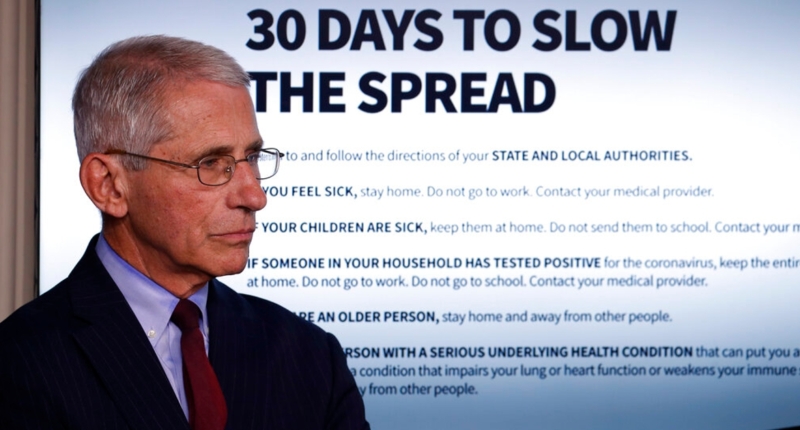According to a public health expert, the Covid-19 pandemic has caused a decline in trust in public health officials and government agencies, such as the Centers for Disease Control. This mistrust is a significant factor that fuels irrational limbic-“logic” which ascribes malevolent and ulterior motives to unexpected developments. Politicians on both sides of the aisle have contributed to lowering public trust, resulting in attacks on public health experts for presenting new scientific data that required a revision of previous statements. However, it is crucial to understand that “following the science” does not automatically determine the best public health policy, as every policy decision has consequences that cut differently depending on where one sits. Rational discussions must take place to resolve legitimate but sometimes conflicting values and concerns, and reducing polarization and lowering the temperature in the room is necessary. The rational majority must elect reasonable representatives to craft science-informed public health policies to deal with life’s challenges. Ultimately, a rational government will prevail, and trust in science and the government will be restored.
The Covid-19 pandemic has caused a decline in trust in public health officials and government agencies, such as the Centers for Disease Control. Leana Wen, a public health expert, believes that agencies should have spent more time educating the public about the tentative nature of their recommendations and the evolving nature of the scientific method. The anxious nature of human psychology is also a factor in the decline of trust. When faced with an ambiguous threat, some people become mistrustful of authorities, which is rooted in the basic structure of the human brain. The limbic system reacts with anger and blame when access to the human/reasonable part of our brain is shut off by a perceived threat. Traumatized individuals are vulnerable to believing unsubstantiated conspiracy theories because they assign responsibility for the crisis and clarify uncertainty/chaos. Conservative reactions to the latest FBI assessment that Covid-19 is the result of a laboratory leak in China highlight the notion of intentionality. Wen notes that the crucial distinction that conservatives and the right-wing media overlooked in their “I told you so” rants is the notion of intentionality.
According to the best available evidence, the Covid-19 laboratory leak was an accident and not a deliberate attempt to create a biological weapon as claimed by the political right. Mistrust is a significant factor that fuels irrational limbic-“logic” which ascribes malevolent and ulterior motives to unexpected developments. This has resulted in attacks on Dr. Anthony Fauci for presenting new scientific data that required a revision of previous statements. Unfortunately, paranoia assumes that changing information implies intentional deception.
However, the political left also has a role in reducing public trust. Progressive attacks on public health expert Leana Wen, for modifying her position on masking and vaccinations, resulted in mistrust. Wen stresses the importance of understanding the limits of science guiding public policy. It is crucial to realize that “following the science” does not automatically determine the best public health policy, as every policy decision has consequences that cut differently depending on where one sits.
For example, while remote learning was useful in suppressing the transmission of Covid-19, it had emotional and learning problems for some children. Balancing health and economic interests/consequences is not a simple task and can only be decided by the difficult political process. In the future, more attention should be paid to communicating policy decisions to the public better. The complexity of the process needs to be better explained, i.e., how difficult it is to prioritize and balance conflicting concerns and outcomes that result from a single government action.
Reducing polarization and lowering the temperature in the room is necessary for reasonable discussions to take place. People need to feel heard when they are panicked, and no immediate solutions are available. One way to calm things and reduce animosity is for the administration to acknowledge the fears of the opposition. It is important to discuss and address their concerns without agreeing with their irrational conclusions or conspiracy theories.
In conclusion, we can learn from the mistakes made dealing with the Covid-19 pandemic. Going forward, we must find a way to reduce polarization and lower the temperature in the room so that reasonable discussion can take place. The art of politics is all about resolving legitimate but sometimes conflicting values and concerns.
Recent elections have shown that voters overwhelmingly reject candidates who promote false conspiracies. While the threat to reason exists for many, enough Americans have the maturity and mental stability to experience hardship and tragedy rationally without falling prey to paranoid schemes. Although unscrupulous politicians exploit fear, the rational majority will elect reasonable representatives to craft science-informed public health policies to deal with life’s challenges. Ultimately, a rational government will prevail, and trust in science and the government will be restored.
Don’t miss interesting posts on Famousbio









